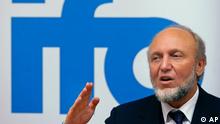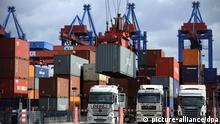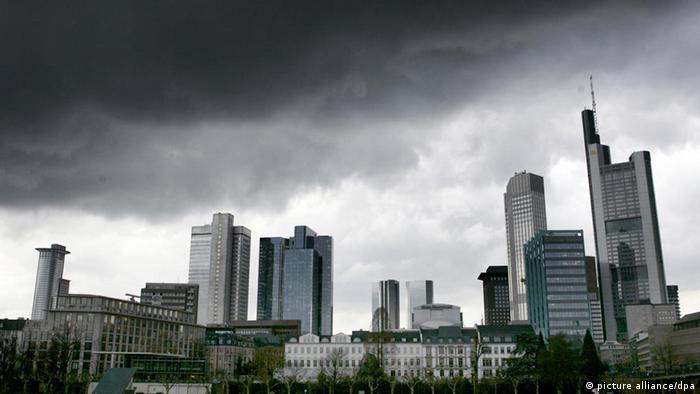The mood in the German economy is worsening. Up until now, businesses have only been hit by a slowdown but demand from the eurozone, China and the US is already on the decline. Is Germany falling into recession?
In answer to the question of how they are assessing their own economic situation, more and more German business owners are saying: "not so good." And as for their expectations for the future, the ever more frequent answer is "not much."
The Ifo Institute for Economic Research in Munich surveys around 7,000 German businesses every month and puts together its "Business Climate Index." Last week, Ifo President Hans-Werner Sinn summed up the latest study: "The euro crisis is increasingly affecting the economy in Germany."
If the soft indicators were hard…
Up until now, the German economy has only been hit by a "slowdown," says Deutsche Bank analyst Heiko Peters. A mood barometer like the Business Climate Index is just a so-called "soft indicator," he told DW, and at the moment that slowdown "is not showing in hard indicators like production, order numbers, and retail turnover."

Sinn says the euro crisis is affecting Germany more and more
But he warned that if the business climate does not improve, then it could easily begin to affect those hard indicators - after all, Germany is also feeling the European depression. This could happen in the near future, since Deutsche Bank is expecting the German economy to weaken in the second half of the year.
Export-dependent
On the world export lists, Germany, the former "Export World Champion," has dropped down to third place. But if exporting goods were an Olympic discipline, then it would still be enough for a bronze, and for Germany exports are still an all-important economic motor. Rudolf Hickel, director of the labor and economics institute at the University of Bremen, warns that "the economy will be hit hard if exports are affected."
Peters says he has already detected the first indications of this, since "40 percent of German exports are to other eurozone countries, and demand is falling significantly there." Hickel is unsurprised by the development. "People there have much less money for consumer goods, and there is no investment in the economy," he said. "So demand is sinking and with it the import of goods and services from Germany."
Peters says the economic depression in the southern eurozone countries has not yet reached Germany because "the demand from the US and China has been relatively strong." But that is already changing, because slowing growth in China and stagnation in the US is making German exports more difficult.
Slightly above zero
Exactly how much the Europe-wide depression will affect the German market cannot be seriously predicted. At least, not yet, says Peters. German Gross Domestic Product grew by 0.5 percent in the first quarter of the year, and by a little more in the second quarter. And despite a big dip in economic development, Germany is expected to stay in the black in the medium term. "We expect positive growth rates in the third and fourth quarters," says Peters. "And we're also expecting growth of one percent in 2013."

Exports are still vital for Germany
Hickel is not so optimistic. He doesn't expect Germany to slide into the red this year, but he refuses to predict what will happen in 2013. "That is very, very uncertain," he said.
High-level suffering
Should the economy shrink in Europe, them Germany will come under considerable pressure, and jobs will be threatened. But the Germans could also be directly affected by the European crisis - if the single currency collapses. That's why Peters is cautiously anticipating the troika report on Greece, to be released in September. By then it should also be clear what's on the agenda for Spain and Cyprus.
"We're being sucked into the euro crisis," says Hickel, but he added that Germany was "suffering at a relatively high level." Despite this, he doesn't believe Germany will fall far. Peters shares this view: as long as the euro survives, the Deutsche Bank expert said he did not believe that Germany will fall into recession. DW DE

Comments